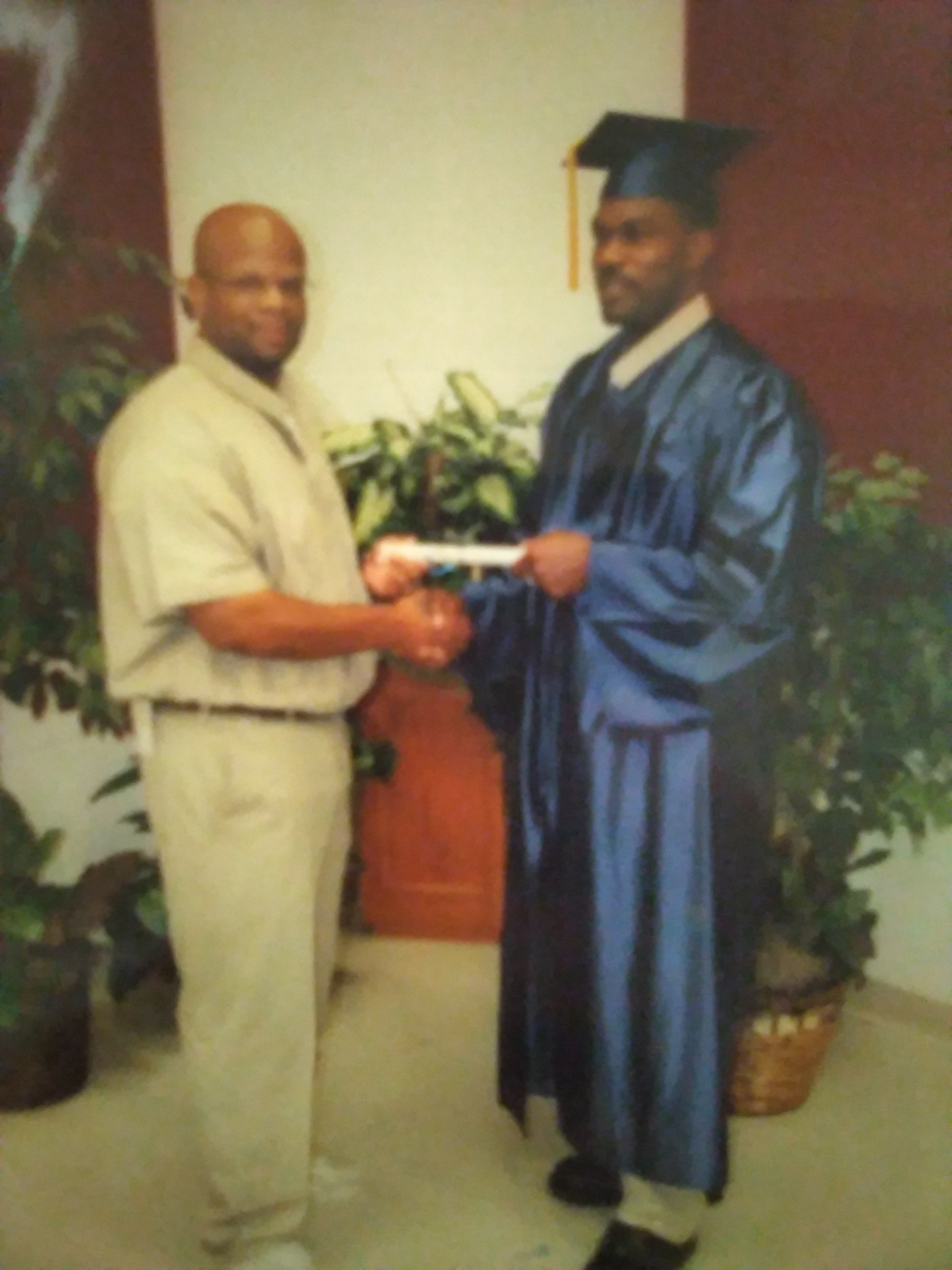Ernest Howard
Clemency for Ernest Howard
How The Federal Government Used a $150 Marijuana Conviction to Sentence Ernest Howard to 35 Years in Federal Prison, Without Parole, For Murder—a Murder he was Never Charged With, Tried For, or Convicted of.
Ernest Howard has been in federal prison since the 90s, for a crime he was never charged with, tried for, or convicted of.
You heard that correctly. In the United States of America the federal government can imprison people for decades for uncharged, untried crimes—no indictment, no trial.
In particular, there is a loophole in federal court that prosecutors skillfully exploit.
After a one-day jury trial, Ernest was convicted of a two-day $150 marijuana operation. His mandatory punishment range was 6 - 12 months in prison. At sentencing he was blindsided. The government maintained that Ernest was actually responsible for murder. The uncharged, untried murder was used to increase the mandatory punishment range for the marijuana offense from 6 - 12 months in prison to 292 to 365 months in prison, about a 30-fold increase!
Given the U.S. Sentencing Guidelines were mandatory in 1998, Ernest was sentenced to 35 years in federal prison, without the possibility of parole.
It works like this. In our nation there are vitally important constitutional procedural safeguards afforded to the criminally accused. If the state or federal government wants to imprison a man or woman, it must first obtain an indictment via a grand jury. Then it must prove beyond a reasonable doubt every element of every offense to 12 jurors. And during the trial the accused has a right to face his accusers via vigorous cross-examination. There are also crucial protections that prevent inadmissible evidence, such as out-of-court hearsay, from being used at trial.
These constitutional firewalls stand between the citizen and the mighty U.S. government and are expressly designed to maintain the integrity of the process.
But the federal government has found a way to skirt these pesky constitutional procedural protections.
Take Ernest's case. The government wanted to imprison Ernest for a murder. Problem is, to do that the government would have to prove its case beyond a reasonable doubt to 12 jurors. The government knew it could not do that.
The solution: convict Ernest of a $150 marijuana offense, and at sentencing for the marijuana offense, tack on the uncharged murder, thereby increasing Ernest's mandatory punishment range by decades. Problem solved. In short, the government brought through the backdoor what it could not bring through the front.
This is key. By tacking on the uncharged murder at Ernest's sentencing for his $150 marijuana offense, the government doesn't have to worry about getting an indictment or proving to 12 jurors beyond a reasonable doubt the murder. The murder gets a free ride on the back of the marijuana conviction.
At sentencing, none of those constitutional procedural safeguards apply. It's a prosecutor's dream.
This trick allowed the government to use the marijuana conviction as a vehicle to imprison Ernest for the uncharged, untried murder. In other words, the marijuana conviction was a ruse. From the outset, it was the uncharged murder that the government wanted to punish.
Murder on the cheap. It's a counterfeit brand of "justice" that the most highly regarded legal minds have denounced, including U.S. Supreme Court Justices Kavanaugh and Gorsuch and the late Justice Scalia, among many more.
The Government's Murder Theory
According to the government, Ernest and Alfred Brooks recruited a third-party to sell $150 of marijuana (in dime-bag units) over a two-day period. To facilitate the marijuana operation, they used a house rented for that specific purpose.
One Sunday night, the person who was selling the marijuana was awoken from a dead sleep, by a loud banging on the back door. Still half asleep, scared that someone was kicking down the door to rob and kill him, he testified that he shot toward the backdoor, striking and killing someone.
The government reasoned that because on that Sunday Ernest provided a gun to the third-party and advised him to protect the drugs (a handful of dimebags of marijuana) and money (about $60), that he was guilty of murder.
The Star Government Witness Effectively Testified That Ernest Was Innocent of the Murder
At the marijuana trial, the star government witness Alfred Brooks dropped a bombshell on the prosecutors. On direct examination the prosecutor asked its star witness to walk him through the events.
And then the truth came out. Instead of testifying that Ernest provided a gun to the third-party and drove him to the marijuana house to sell marijuana on that Sunday, government witness Alfred Brooks testified that that did not happen, that Ernest was with him and others.
Plainly, the star government witness provided unequivocal sworn testimony that refuted the government's murder theory. He, in effect, testified that Ernest was innocent of the murder.
Problem is, Ernest was not being tried for murder. He was being tried for a $150 marijuana offense. He was only being sentenced for the murder during the marijuana sentencing.
Tricky.
Compassion acts. Please sign and share Ernest’s Petition.


